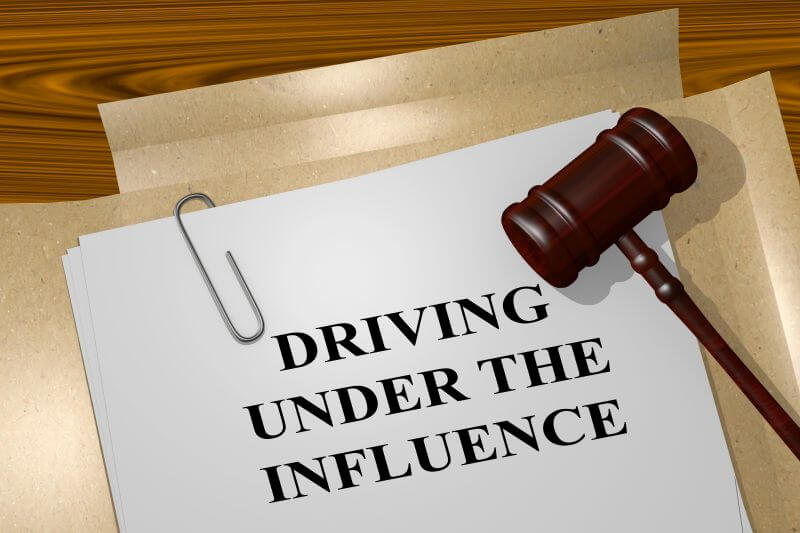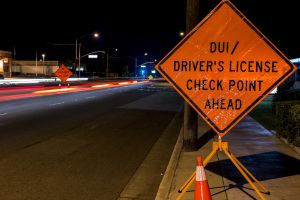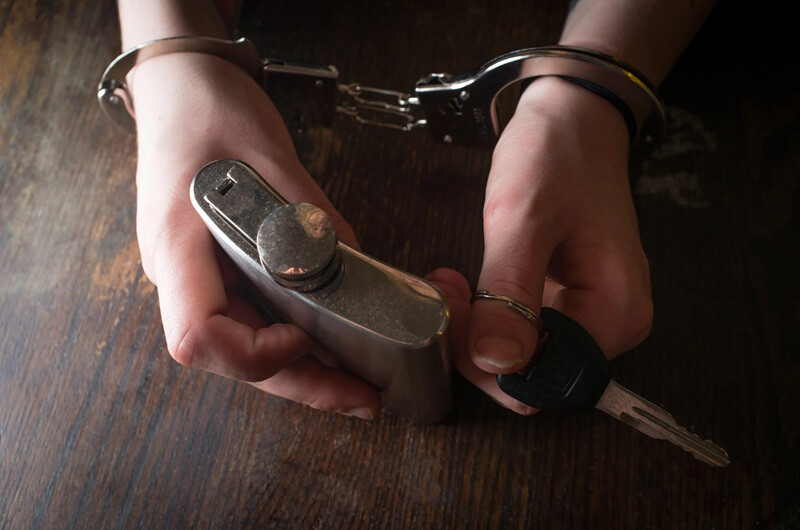What Are The Penalties For DUI/DWI In Virginia?
What Are The Penalties For DUI/DWI In Virginia?
If you face DUI or DWI charges in Virginia, you’re not just dealing with a ticket. The consequences go beyond fines and can include license suspension, jail sentence, and a permanent criminal record. Understanding the risks is critical for protecting yourself and avoiding mistakes that could affect your life for years.
This guide explains the penalties for DUI/DWI offenses in Virginia. You’ll learn about the laws, possible criminal charges, and how contributing circumstances like prior offenses or high BAC levels can impact your case. Whether you want to stay informed or protect yourself, securing legal representation during pressing times helps you navigate your case.

Overview Of Virginia DUI/DWI Laws
In Virginia, the terms driving under the influence (DUI) and driving while intoxicated (DWI) are often used interchangeably. DUI/DWI laws aim to prevent impaired driving and ensure public safety. They apply to anyone operating a motor vehicle, train, or even mopeds and similar vehicles while under the influence of controlled substances or alcohol.
For adult drivers aged 21 and older, a blood alcohol concentration (BAC) of 0.08% or higher triggers a DUI charge. Commercial drivers face a stricter threshold of 0.04%. Individuals under 21 must adhere to a nearly zero-tolerance policy, with automatic penalties for a BAC of 0.02% or more.
Virginia law allows authorities to charge a driver with DUI based on a BAC at or above the legal limit, without needing other proof of intoxication. It enables prompt action against impaired drivers, even if other signs of intoxication are not immediately visible.
However, the law doesn’t stop at defining impairment. It also establishes specific responsibilities for drivers when faced with testing for intoxication. Understanding Virginia’s implied consent laws and the role of chemical testing can shape how a case unfolds.
Understanding Implied Consent Law
When a driver is suspected of DUI in Virginia, the investigation doesn’t rely solely on observation. Chemical tests play a key role in determining intoxication levels. The state uses implied consent laws to ensure drivers comply with testing, creating a legal framework that supports swift action while outlining penalties for non-compliance.
Implied Consent Law
Virginia’s implied consent law means that by operating a vehicle on public roads, you automatically agree to chemical testing if arrested for DUI. These tests, such as breath or blood analysis, measure alcohol or drug levels in your system and often provide the most compelling evidence in DUI cases.
Before your arrest, you can voluntarily decline preliminary breath tests and field sobriety tests without violating implied consent rules. However, refusing these tests will not prevent your arrest. Following your detention, you must cooperate with evidentiary and blood tests to determine your BAC and detect intoxicating substances.
Penalties For Refusal
Refusing a chemical test after an arrest brings immediate and escalating consequences. If you refuse for the first time, the state will suspend your license for one year, treating it as a civil offense. However, repeated refusals result in criminal penalties. A second refusal within ten years is classified as a Class 1 misdemeanor, carrying a three-year suspension of license, up to a year in jail, and a fine of up to $2,500. Subsequent refusals lead to longer suspensions and harsher penalties.
Chemical testing and implied consent laws are critical tools in combating impaired driving. They provide evidence in DUI cases and impose serious consequences for drivers who refuse to cooperate. However, these are just one piece of the puzzle. Criminal penalties for DUI add further severity to these offenses, making it vital to understand the broader scope of potential outcomes.
Criminal Penalties For DUI In Virginia
Virginia’s DUI laws impose severe criminal penalties designed to deter unsafe driving and protect public safety. These consequences escalate with repeat offenses and aggravating circumstances. If convicted, drivers face financial hardships, potential jail time, and restrictions on their ability to drive. These can have lasting effects on their personal and professional lives.
First Offense
A first-time DUI conviction with a BAC between 0.08% and 0.15% qualifies as a Class 1 misdemeanor. It requires a mandatory minimum fine of $250 and imposes a one-year driver’s license suspension. Offenders must also complete the Virginia Alcohol Safety Action Program (VASAP), which provides education and treatment to reduce the risk of reoffending.
If you request a restricted license during the suspension, the law mandates the installation of an ignition interlock device (IID). This breathalyzer wired into a vehicle’s ignition prevents one from driving if alcohol is detected in their system, adding a layer of accountability.
Second Offense
A second DUI conviction brings harsher penalties, with a minimum $500 fine and a three-year license revocation. Jail time depends on the timing of your previous offense. If the second offense happens within 10 years, you face at least 10 days in prison. The minimum jail sentence for offenses within five years from the last increases to 20 days. To regain limited driving privileges, you must install an IID.
Third Offense
The law treats a third DUI offense as a Class 6 felony, which requires a minimum fine of $1,000. Mandatory jail time includes at least 90 days if the previous offenses occurred within the last 10 years or at least six months if they happened within the past five years. If the offender solely owns the vehicle used during the offense, the court may order vehicle forfeiture. Convictions can also result in indefinite license revocation.
Fourth Or Subsequent Offenses
A fourth conviction results in a mandatory prison sentence of at least one year, alongside increased fines and permanent penalties. Offenders face the loss of driving privileges for life, reflecting the state’s view that repeated impaired driving poses an unacceptable risk to public safety.
These escalating penalties highlight the seriousness of DUI convictions and their potential to derail your life. However, not all cases are treated equally. Aggravating factors can significantly increase these penalties and create even greater challenges for those charged.
Enhanced Penalties For Aggravating Factors
Certain circumstances can lead to harsher consequences for DUI convictions. These aggravating factors demonstrate increased risks on the road or a disregard for the law, prompting courts to impose stricter sentences. Drivers facing these conditions may experience longer jail time, steeper fines, or additional legal consequences.
High BAC Levels
Drivers with elevated BAC levels automatically face enhanced sentences. A BAC of 0.15% to 0.2% adds a mandatory five-day jail sentence for a first offense and ten days for a second offense within ten years. If the BAC reaches 0.2% or higher, the penalties rise further. A first offense results in an additional 10-day jail term, while a second offense adds 20 more days.
DUI With A Minor As Passenger
Operating a vehicle under the influence with a minor passenger leads to enhanced punishments because of the increased risks. Convictions result in an additional five-day jail sentence and fines between $500 and $1,000. Courts treat this offense as a severe violation, as it places a vulnerable child at significant risk.
Accidents Or Injuries
DUIs involving accidents that result in injuries, fatalities, or significant property damage bring much heavier penalties. In these cases, drivers can face felony charges, extended jail time, and higher fines. Depending on the severity, these incidents may also lead to civil lawsuits, adding financial and legal challenges.
Driving On A Suspended License
A DUI with a suspended or revoked license significantly increases the severity of the offense. In these circumstances, a misdemeanor can escalate to a felony or aggravated DUI. Courts treat this as an apparent disregard for the law, imposing harsher penalties such as longer jail sentences, extended license suspensions, and higher fines.
Each of these aggravating factors adds significant weight to DUI penalties, complicating the path to recovery after a conviction. Having skilled legal representation in these situations can significantly influence the outcome of your case.
The Irving Law Firm Defends You Against DUI Charges
The thought of losing your license, facing hefty fines, or spending time in jail due to a DUI charge is daunting. But you don’t have to face these challenges alone. At The Irving Law Firm, we understand your concerns and provide the clear guidance and strong defense you need to move forward.
Every DUI case presents unique barriers, and we focus on the details that set your situation apart. Our dedicated team analyzes the evidence, uncovers weaknesses in the prosecution’s case, and crafts personalized strategies to reduce or dismiss penalties. Whether questioning breathalyzer accuracy or challenging the circumstances of your arrest, we explore every possible angle.
Your future matters to us. We use our experience and commitment to help clients navigate DUI charges effectively and avoid harsh penalties. From protecting your driving privileges to fighting for a case dismissal, we stand by you at every stage. Take the first step toward building your defense by reaching out to capable hands.
Summary
Virginia’s DUI laws carry serious consequences, from fines and jail time to license suspensions and lasting legal records. Aggravating factors like high BAC levels, accidents, or driving on a suspended license can make these penalties even more severe. Understanding the law and your rights is essential to avoiding mistakes that could impact your future.
Acting promptly and strategically can significantly impact the outcome of DUI charges. The Irving Law Firm provides guidance and support to help you address the challenges of your case. Let us deliver the legal defense you need to safeguard your future and prevent a conviction from defining your life.





